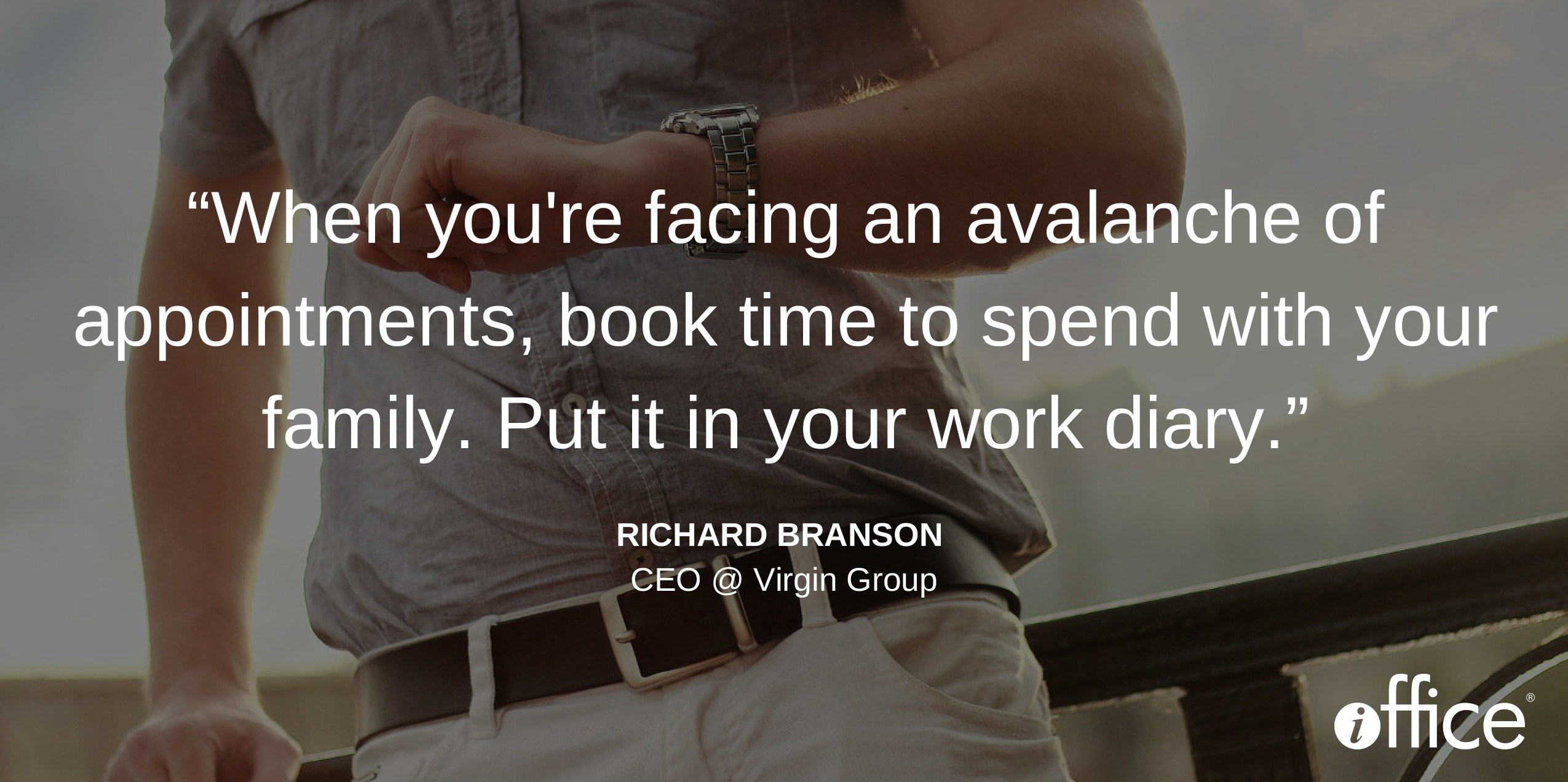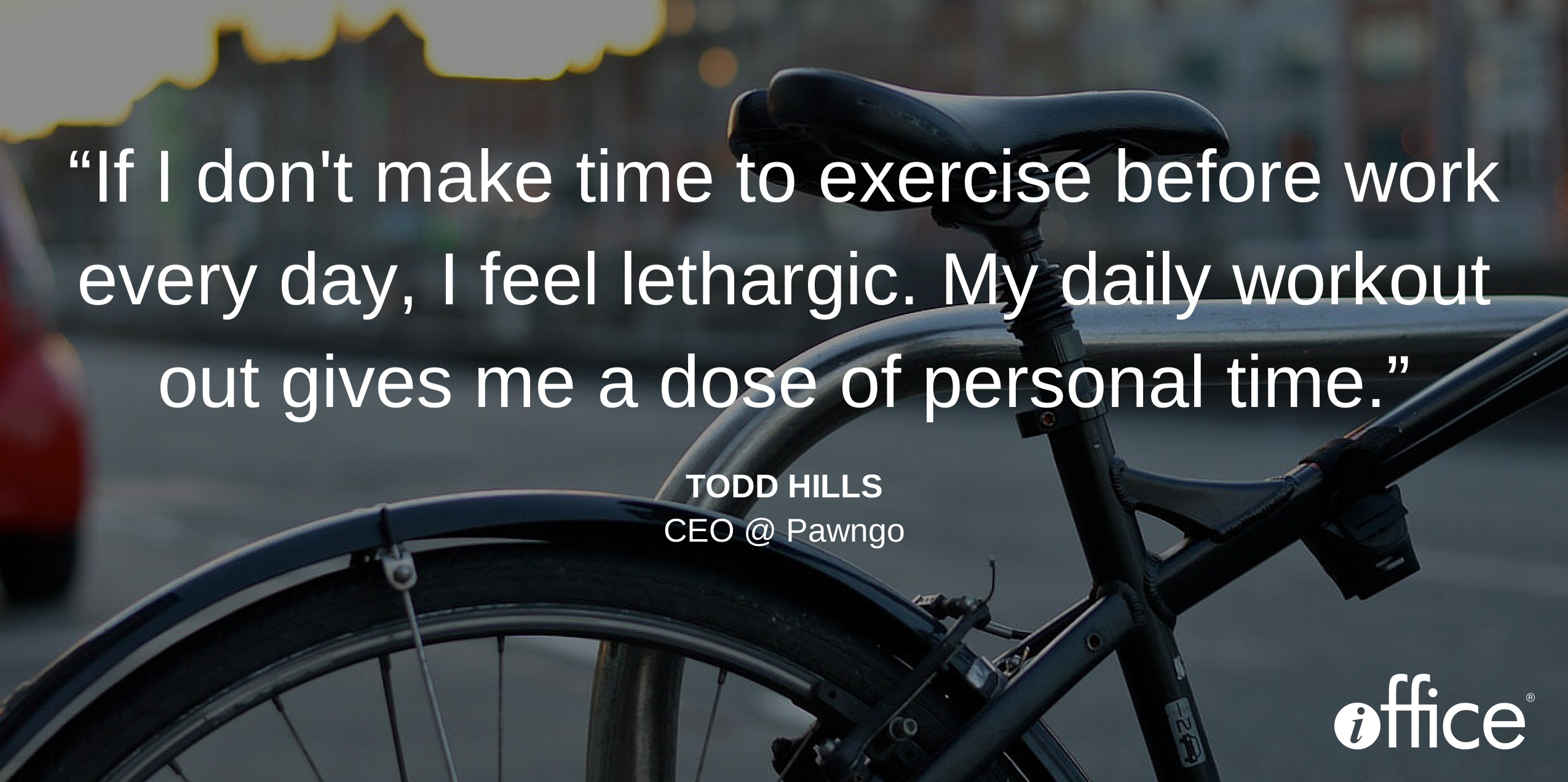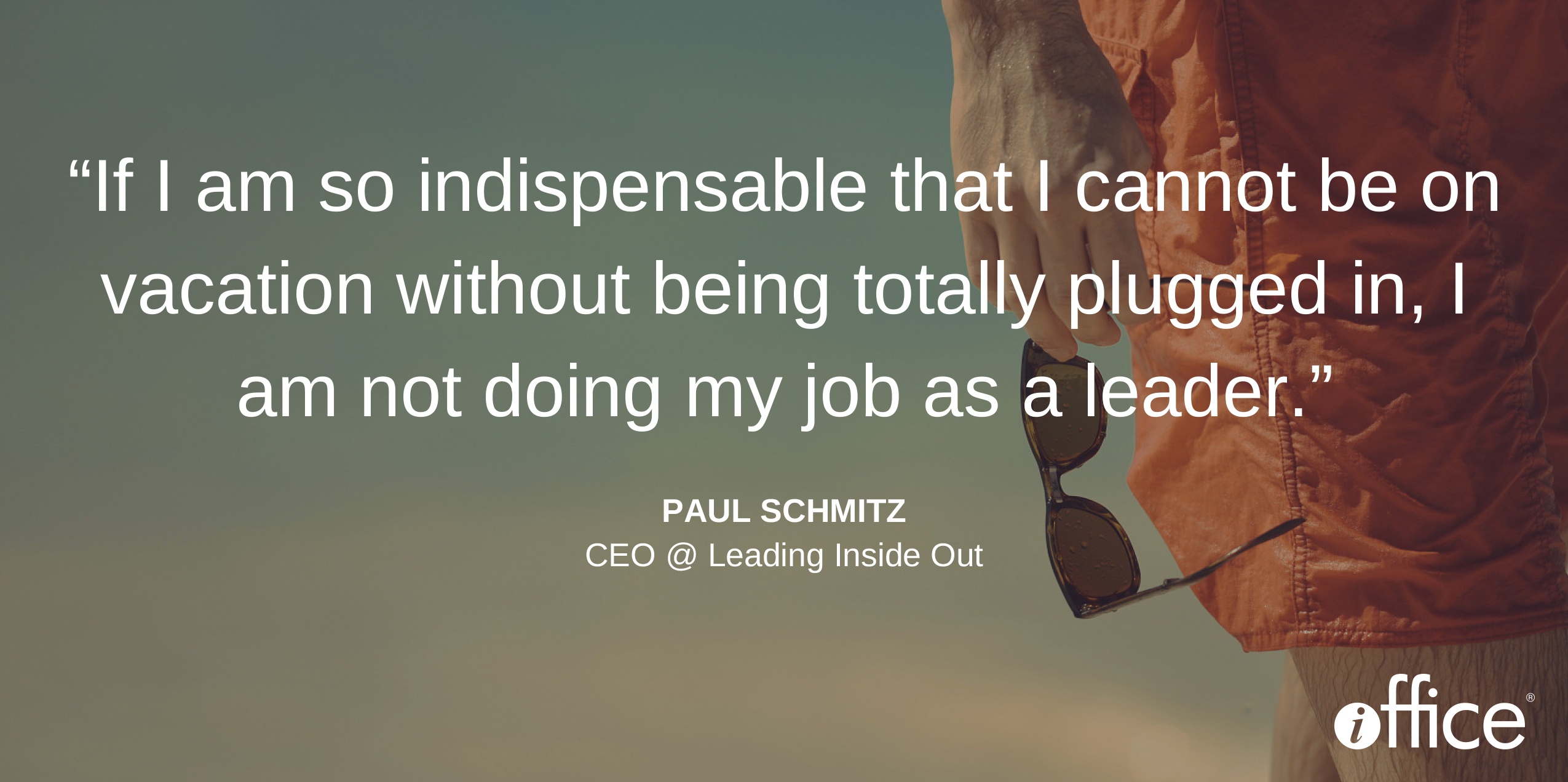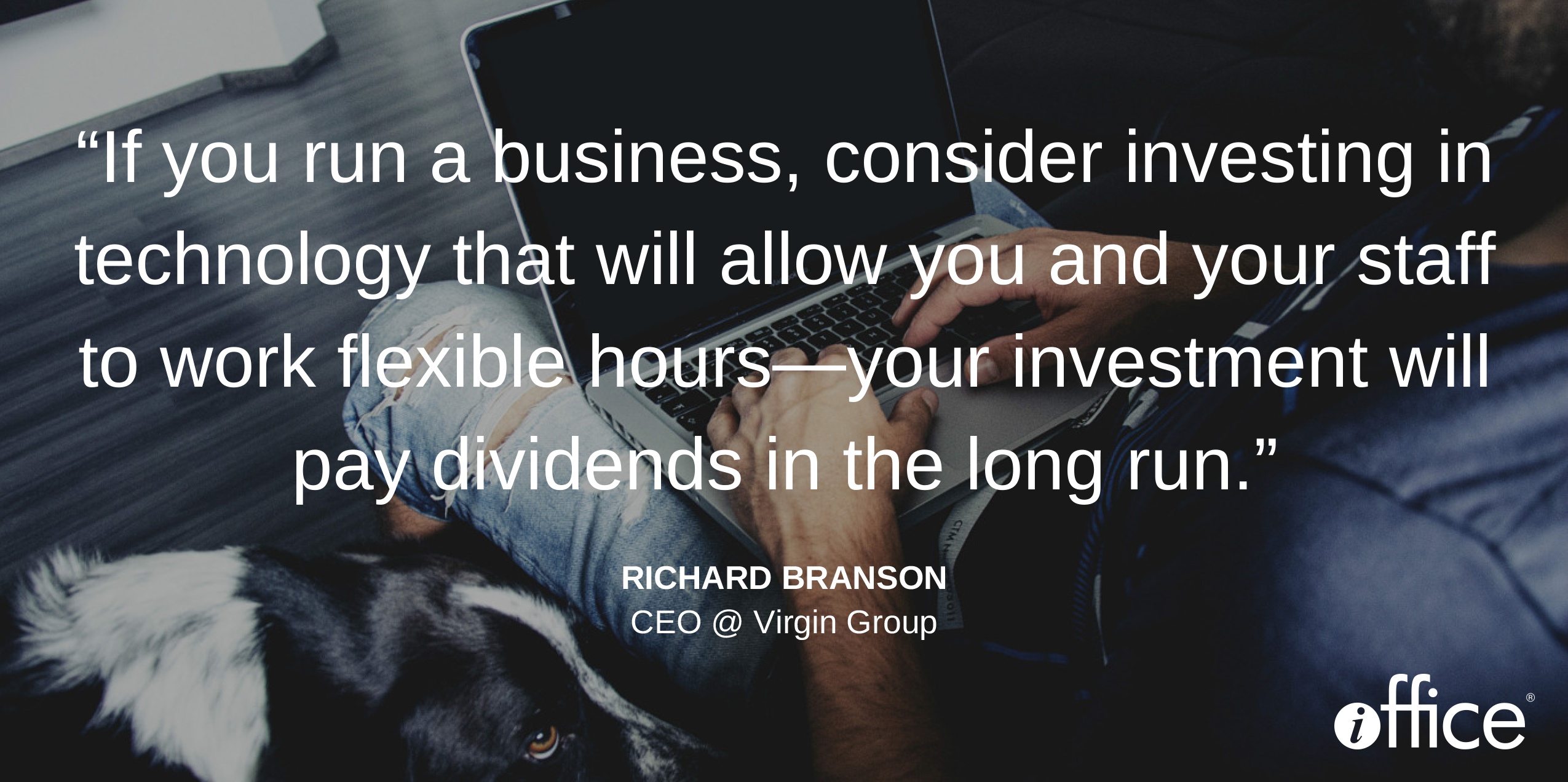4 Ways Executives are Killing Their Work-Life Balance (and How to Fix It)


As a leader, you’re always concerned about your employees’ level of satisfaction—particularly when it comes to their workload and hours spent at the office. Helping your team remain highly functional, achieve greater levels of productivity and avoid burnout comes with the territory of being a part of the C-suite. But what about when it comes to your own work-life balance?
Just because you’ve earned one of the highest positions within an organization doesn’t mean you don’t grapple with the same job satisfaction issues that plague your employees. In fact, the title of “executive” is often accompanied by a tremendous amount of pressure and responsibility. Given most C-suite professionals achieved their positions through a great deal of dedication, personal sacrifice and commitment to success, it’s no surprise endeavors outside the workplace often take a back seat.
A quick Google search on achieving a healthy work-life balance returns a slew of articles full of tips and best practices. But many of these suggestions are aimed at entry to mid-level employees. Where’s the advice for the over-achieving, responsibility-inundated executive whose department or business would crumble in the absence of his or her experienced guidance?
Keep reading to learn advice by successful executives specifically targeted to leaders like you.
Failing to Book Personal Time

Whether you’re a regimented type-A professional, or maintain a slightly less organized workstyle, one thing is almost always true: executives live by their appointment calendars. When you’re consistently pulled in a thousand directions, you can always count on your trusty pop-up alerts to remind you of your next meeting. If it’s not on your calendar, it’s almost as if it doesn’t exist—and the same holds true for personal time.
Richard Branson, well-known CEO of Virgin Group, suggests treating family time like any other important scheduled event. “When you’re facing an avalanche of appointments, book time to spend with your family,” Branson says. “Put it in your work diary.”
We’re all guilty of putting off personal time in anticipation of some magical future when things supposedly slow down. But here’s the truth: If you wait for the “right time” for a romantic getaway with your spouse or camping trip with your kids, it’ll never happen. Schedule in the time, and consider it sacrosanct.
Putting Your Health at the Bottom of Your Priority List

Despite recent science breakthroughs, it doesn’t look like scientists are anywhere close to routine full-body transplants—so it’s important to take care of the one you’ve got. Exercising regularly, eating balanced meals and taking time to de-stress all take a back seat when you’re hyper-focused on professional success. Unfortunately, ignoring your health puts you at a far greater risk of developing chronic illnesses that can affect not only your quality of life, but also your ability to perform well as a leader.
The good news is it’s easier than ever to stay on top of your health. From wearable technology to locally sourced, pre-packaged meal plans delivered to your home or office, there are many chances to invest in your longevity. Plus, a yoga class or daily jog can double as a stress killer and productivity booster.
“If I don’t make time to exercise before work every day, I feel lethargic,” says Todd Hills, CEO of Pawngo. “My daily workout out gives me a dose of personal time.”
Not Trusting the Leaders of Your Team

As an executive, one of the most difficult—but also one of the most important—aspects of your job is delegating appropriately. If you can’t delegate, you can forget about ever achieving a work-life balance.
“If I am so indispensable that I cannot be on vacation without being totally plugged in, I am not doing my job as a leader,” says Paul Schmitz, CEO of Leading Inside Out.
When you’re a member of the C-suite (or any level or management), “If you want something done right, then do it yourself” is a dangerous mantra. No matter how capable you are in your role, you’re still only one human being. To be most effective, you need the support of not only fellow executives, but other employees in leadership positions. If you’ve provided them the training and tools they need to succeed, it’s important to give them an opportunity to shine. And, if you haven’t provided them the resources they need to take the reins, it’s time to do so.
Seeing Technology as the Culprit Instead of the Solution

From the boardroom to the dinner table, your smartphone is never out of reach. Often, you can’t resist a quick peek just to make sure everything is OK. More times than not, a quick glance turns into an hour of checking email or an entire evening of putting out fires. In our ever-connected environment, it seems like technology does more harm to our work-life balance than good.
But here’s the thing: While technology has the potential to encourage a 24-hour workday, it also allows you and your team to unchain yourselves from your desks and work remotely.
“If you run a business, consider investing in technology that will allow you and your staff to work flexible hours—your investment will pay dividends in the long run,” says Branson. “You will all be less stressed by long commutes and less discouraged about missing those special moments, from first steps to first words, so you will have more space to think creatively.”
Instead of missing out on all the life happening between your morning and evening commute, you can schedule work around life events. Instead of feeling guilty for missing your parents’ anniversary party or your child’s soccer game, you can work around these moments.
Of course, every business is different. The technology solution that works for Virgin Group, for example, may be different than the solution that works for a start-up SaaS company or a mid-size manufacturing business. That’s where a mobile-integrated workplace management system (IWMS) comes in handy. You can stay looped in and involved on all aspects of your business, even from thousands of miles away.
Conclusion
Struggling to maintain a work-life balance is nothing new. However, while it’s always been a challenge, it’s becoming especially difficult for highly involved C-suite executives. You’ve worked hard to get to where you are, but an unbalanced life can threaten this success. If you’re guilty of any of the habits listed above, it’s time to re-prioritize. By booking personal time, taking a vested interest in your health, trusting the support of your team and investing in the right technology resources, you can achieve a sustainable work-life balance.
Are you taking full advantage of the modern workstyle? Discover how to be a workplace trailblazer, increase efficiency and keep employees happy in our free eBook Wide Open Workspace.